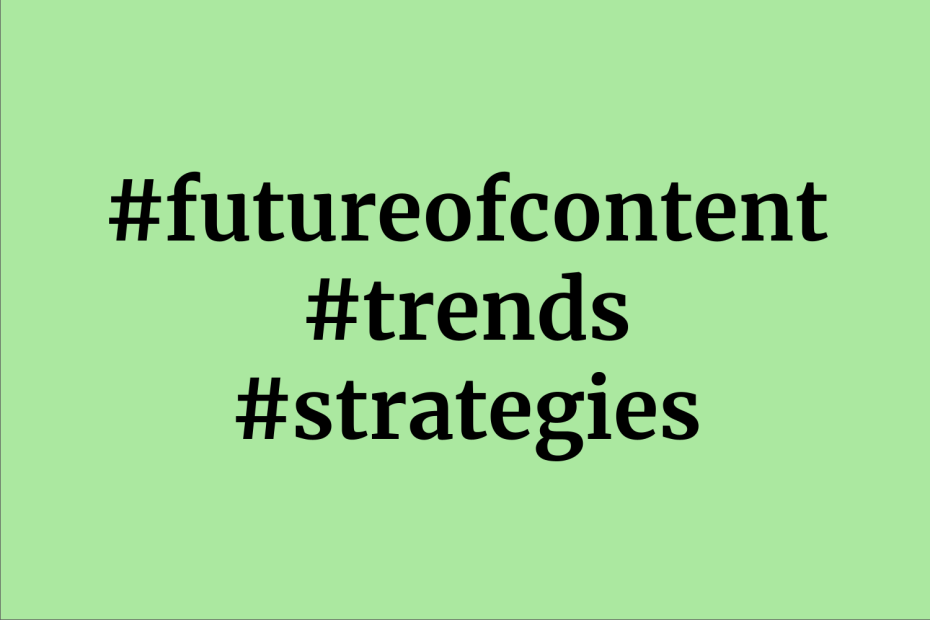In the digital age, content has become the driving force behind successful marketing and brand engagement. As technology continues to evolve and consumer behaviors shift, it is crucial for businesses to stay ahead of the curve and adapt their content strategies to the changing landscape. In this article, we will explore the future of content by examining emerging trends and discussing strategies for success in the ever-evolving digital realm.
Personalization and Hyper-Relevant Content
Understanding the Power of Personalization: personalization has become a key differentiator in the content space. Consumers expect tailored experiences and content that speaks directly to their needs and preferences. Businesses that leverage data and analytics to deliver personalized content will forge stronger connections with their audience and drive better engagement.
Utilizing Artificial Intelligence (AI) and Machine Learning (ML): AI and ML technologies are transforming the way content is created, curated, and delivered. These technologies enable businesses to analyze vast amounts of data, identify patterns, and generate personalized recommendations. AI-powered chatbots and virtual assistants are also improving customer experiences by providing instant, personalized responses and assistance.
Embracing Hyper-Relevant Content: hyper-relevant content goes beyond personalization by delivering contextually relevant information in real-time. It involves leveraging data, user behavior, and location-based insights to provide highly targeted content that meets the immediate needs of consumers. This approach enhances customer experiences, fosters loyalty, and drives conversion rates.
Interactive and Immersive Experiences
Incorporating Interactive Content Formats: interactive content formats, such as quizzes, polls, assessments, and interactive videos, are gaining traction as they actively engage users and encourage participation. These formats create a sense of involvement, making the content experience more memorable and shareable.
Embracing Virtual and Augmented Reality (VR/AR): VR and AR technologies are transforming the way content is consumed by offering immersive experiences. Businesses can leverage VR/AR to showcase products, provide virtual tours, and create interactive brand experiences. This technology has the potential to revolutionize industries such as real estate, tourism, and retail.
Gamification for Engagement: Gamification techniques are being increasingly used to drive engagement and enhance the content experience. By incorporating game elements, such as challenges, rewards, and leaderboards, businesses can captivate audiences, foster competition, and encourage participation.
User-Generated Content and Influencer Marketing
Harnessing the Power of User-Generated Content: UGC has become a powerful tool for businesses to leverage the creativity and authenticity of their audience. Encouraging customers to generate content, such as reviews, testimonials, and social media posts, not only increases engagement but also builds trust and credibility.
Collaborating with Influencers: Influencer marketing continues to be a key strategy for businesses to amplify their reach and connect with their target audience. Collaborating with influencers who align with their brand values and target market allows businesses to leverage the influencer’s credibility and engage with a larger, highly targeted audience.
Nurturing Communities and Advocacy: Building a strong community of brand advocates can significantly impact the success of a content strategy. Engaging with loyal customers, fostering two-way communication, and creating opportunities for advocacy can lead to organic promotion and word-of-mouth marketing, further enhancing brand awareness and reputation.
Conclusion
The future of content is filled with exciting possibilities and opportunities for businesses to engage and connect with their audience. By embracing trends such as personalization, interactive experiences, UGC, and influencer marketing, businesses can stay relevant and drive success in the ever-evolving digital landscape. It is crucial to stay adaptable, leverage emerging technologies, and continually refine content strategies to ensure maximum engagement and deliver exceptional experiences to consumers. The future of content is dynamic, and businesses that embrace change will be well-positioned for long-term success.
